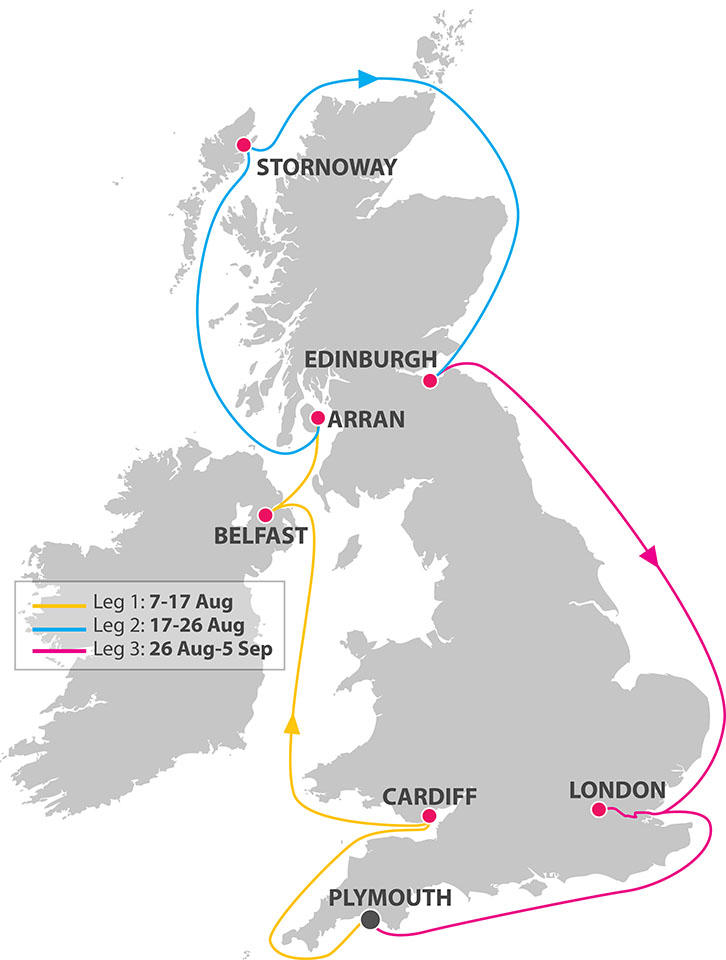Microplastics in mussels and hormone disrupting chemicals in seawater come under the microscope as researchers help an all-woman sailing crew highlight plastic pollution.
An artist, activist, filmmaker and supermarket fish buyer are among the 14-strong eXXpedition crew sailing round Britain to show people and politicians the extent of the problem.
Shellfish and sea water samples they collect will be tested by ecotoxicologists for harmful microplastics and powerful pollutants that derail the endocrine system.
“As seafood eaters, we are likely to be consuming microplastics from these shellfish,” said Dr Chris Green at Brunel University London.
Dr Green is working with masters student Jessica Mannhardt and collaborators at The University of Hull to investigate the types and amounts of plastics in mussels from spots round the British coast. “These are tiny pieces of plastic that mussels ingest like microfibres from clothing and fragmented pieces of bottles and bags.”
While eating microplastics from shellfish is not deemed a human health risk, the effects on people remain unknown. And they could also affect the creature’s ability to grow and reproduce.
Scientists at Hull will extract micro particles from the mussels, before the Brunel team uses electromagnetic radiation to test if they actually are plastic. The spectroscopy process used at Brunel’s Experimental Techniques Centre can even tell what polymer the plastic is – which sheds light on where it has come from. They may also find out if mussels from different locations contain different amounts of microplastics.

Round Britain 2017’s 72ft Sea Dragon yacht left last week from Plymouth where it will return to dock on September 5 after stop-offs in Cardiff, Belfast, Arran, Stornoway, Edinburgh and London. The 30-day mission will also measure seawater for chemicals such as Bisphenol A, used to make plastics, and the flame retardant PFOS. Little is known about the levels of such chemicals in the sea, particularly in Britain – something Brunel’s Professor Rakesh Kanda will analyse.
“It’s great to support the eXXpedition in raising awareness about plastic and chemical pollution,” Dr Green added. “They are providing us with a great opportunity to analyse samples from around the coast to tell us more about the state of our seas.”
Find out more about Brunel’s Experimental Techniques Centre and Institute of Environment, Health and Societies which features in the major feature documentary, A Plastic Ocean. Images: euractiv.com; eXXpedition
Reported by:
Hayley Jarvis,
Media Relations
+44 (0)1895 268176
hayley.jarvis@brunel.ac.uk